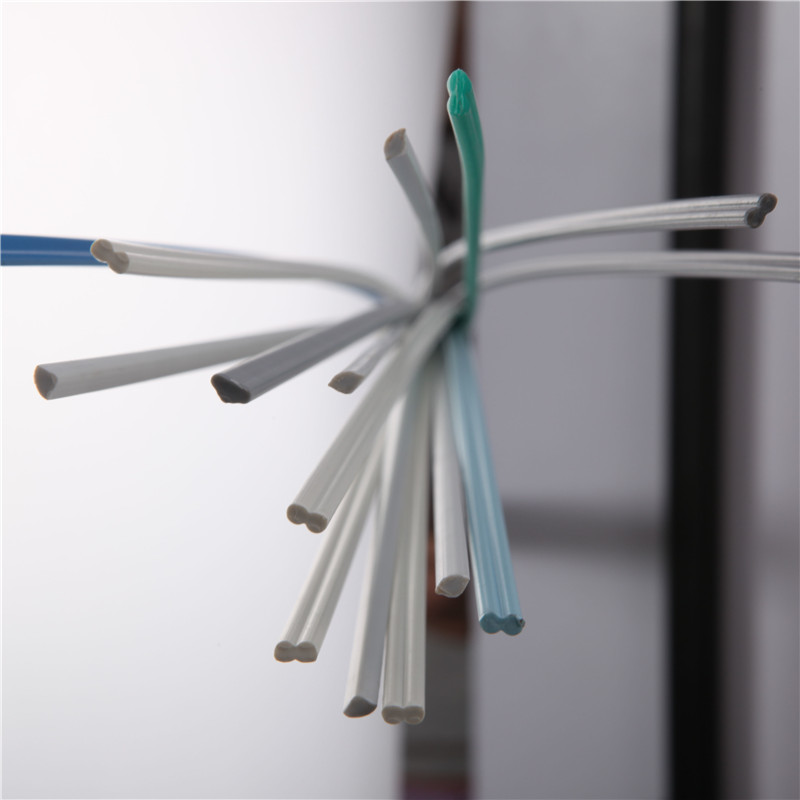Dec . 11, 2024 02:45 Back to list
Understanding the Benefits and Applications of PVC Pipe in Construction
Understanding PVC Pipes Versatility and Applications
Polyvinyl chloride (PVC) pipes have revolutionized the plumbing and construction industries since their invention in the 1930s. Known for their lightweight and durable properties, PVC pipes have become a popular choice for a variety of applications, ranging from residential plumbing systems to industrial drainage solutions. This article will explore the characteristics, advantages, applications, and considerations associated with PVC pipes.
Characteristics of PVC Pipes
PVC is a synthetic plastic polymer made from the polymerization of vinyl chloride. The resulting material is a thermoplastic, meaning that it becomes pliable or moldable when heated, allowing for easy shaping and installation. PVC pipes are typically available in various diameters and lengths, making them versatile enough to suit nearly any plumbing or construction need.
One of the standout characteristics of PVC pipes is their resistance to corrosion and chemical degradation. Unlike traditional metal pipes, PVC does not rust or corrode over time, which makes it an ideal choice for transporting water and chemicals. Additionally, PVC pipes have a smooth interior surface that allows for efficient flow rates, reducing the risk of clogs and backups.
Advantages of PVC Pipes
The popularity of PVC pipes can be attributed to several key advantages
1. Cost-Effectiveness PVC pipes are generally less expensive than their metal counterparts, making them an attractive option for budget-conscious projects. Moreover, their longevity and minimal maintenance needs further contribute to cost savings over time.
2. Lightweight and Easy to Handle The lightweight nature of PVC pipes makes transportation and installation simpler. This quality significantly reduces labor costs associated with heavy lifting and complicated installations.
3. Resistance to Environmental Factors PVC pipes can withstand a wide range of environmental conditions, including changes in temperature, UV radiation, and moisture. This resilience makes them suitable for both indoor and outdoor use.
4. Simplified Installation The installation of PVC pipes is relatively straightforward, as they can be easily cut and joined using solvent cement. This ease of installation allows for quicker project completion, minimizing downtime.
pvc pipe

5. Recyclability As environmental concerns become more prominent, the recyclability of PVC material adds to its appeal. Many manufacturers now offer options that use recycled PVC, reducing the overall carbon footprint of construction projects.
Applications of PVC Pipes
PVC pipes are utilized in a myriad of applications, showcasing their versatility
- Residential Plumbing PVC pipes are commonly used for cold water delivery and drainage systems in homes. Their resistance to corrosion ensures a long lifespan, while their light weight simplifies installation.
- Sewage and Waste Management PVC pipes are often employed in sewage systems for public sanitation. Their durability and resistance to corrosive substances make them suitable for the harsh chemicals often found in waste.
- Irrigation and Agriculture In agricultural settings, PVC pipes are used for irrigation systems, delivering water efficiently to crops while minimizing evaporation losses.
- Electrical Conduit PVC is also used to create conduits for electrical wiring. This application benefits from PVC's non-conductivity and the ability to withstand underground conditions without corroding.
- Industrial Applications From chemical processing to manufacturing, PVC pipes are essential in various industrial processes due to their ability to handle corrosive substances.
Considerations When Using PVC Pipes
While PVC pipes offer numerous benefits, there are considerations to keep in mind. One primary concern is their susceptibility to damage from prolonged exposure to high temperatures; therefore, using them in hot water applications may not be advisable. Additionally, as with any material, ensuring proper installation and regular maintenance is essential for maximizing the performance and lifespan of PVC plumbing systems.
In conclusion, PVC pipes are a versatile and cost-effective solution for a wide range of applications in plumbing, construction, and beyond. Their durability, resistance to corrosion, and ease of installation make them a preferred choice for both professionals and DIY enthusiasts alike. As industries continue to emphasize sustainability, the added benefit of recyclability ensures that PVC pipes will remain a viable option for the foreseeable future.
-
High-Quality PPR Pipes and Fittings Durable ERA PPR & PVC PPR Solutions
NewsJul.08,2025
-
Black HDPE Cutting Board - Durable, Non-Porous & Food Safe HDPE Plastic Cutting Board
NewsJul.08,2025
-
High-Quality CPVC Panel Durable HDPE & PVC Panels Supplier
NewsJul.08,2025
-
Double PE Welding Rod Supplier - High Strength, Durable & Versatile Welding Solutions
NewsJul.07,2025
-
High-Quality PVC-O Pipe Supplier Durable 75mm PVC Pipe & Connections Leading PVC Pipe Company
NewsJul.07,2025
-
HDPE Drainage Pipe Supplier – Durable & Corrosion-Resistant Solutions
NewsJul.06,2025

